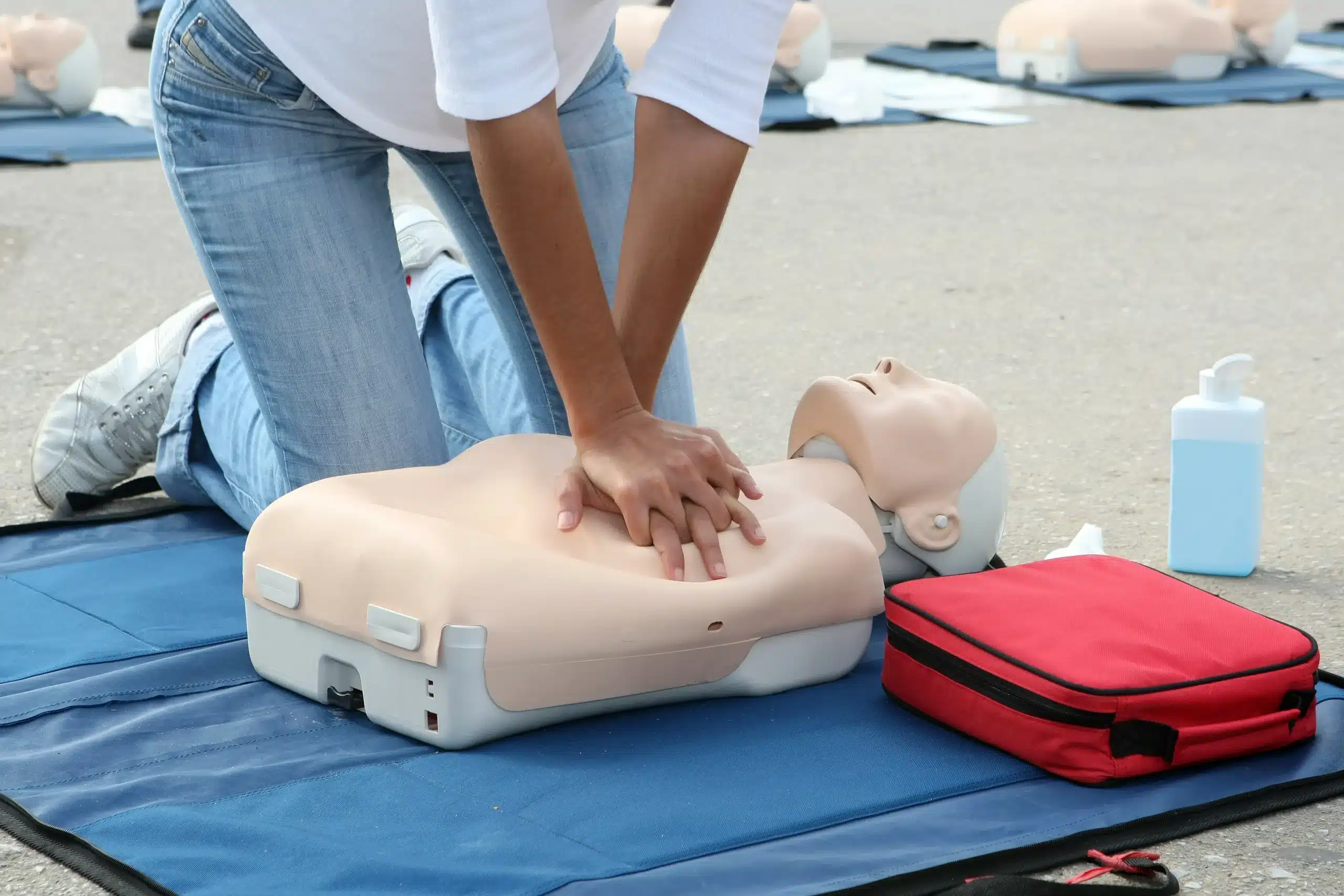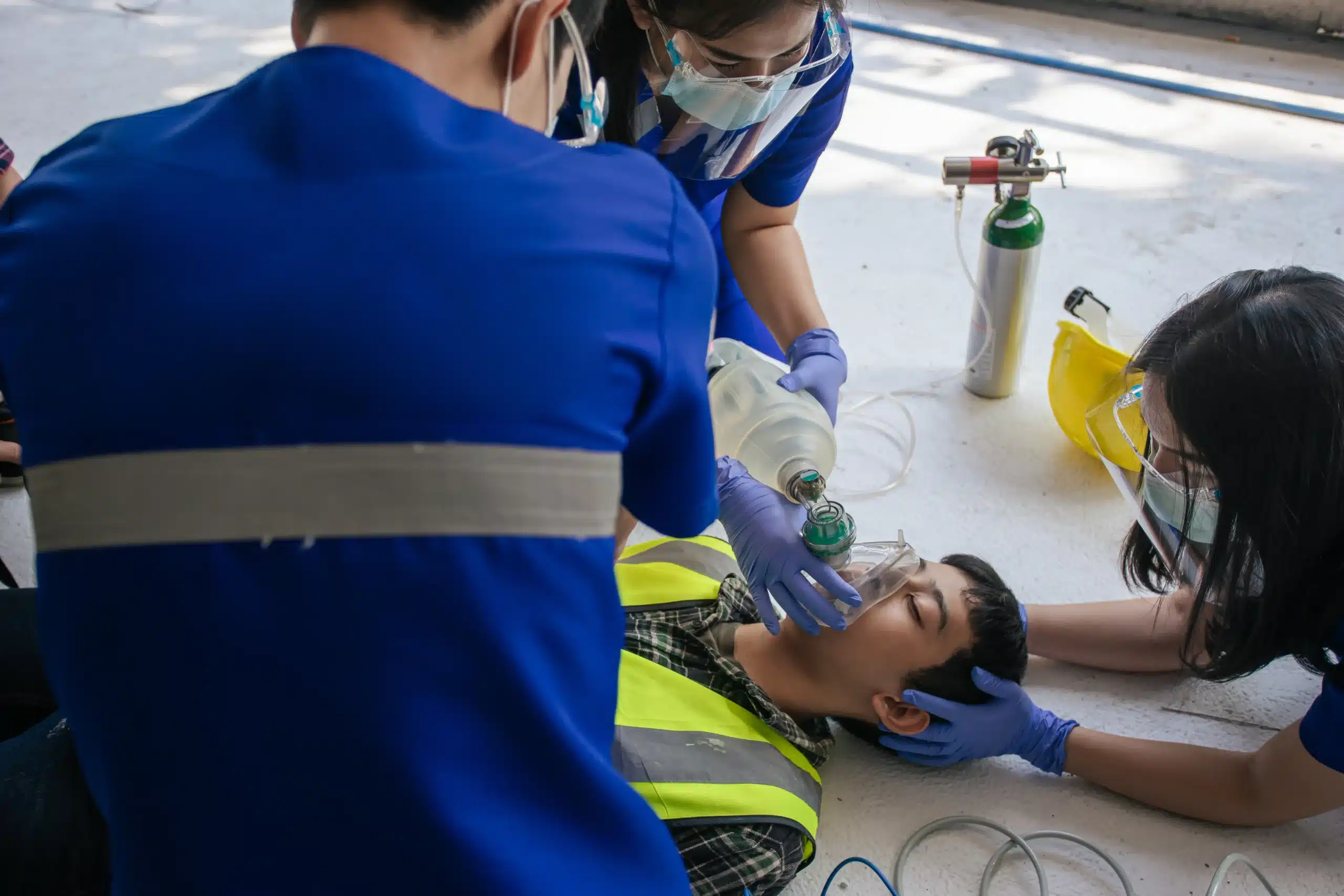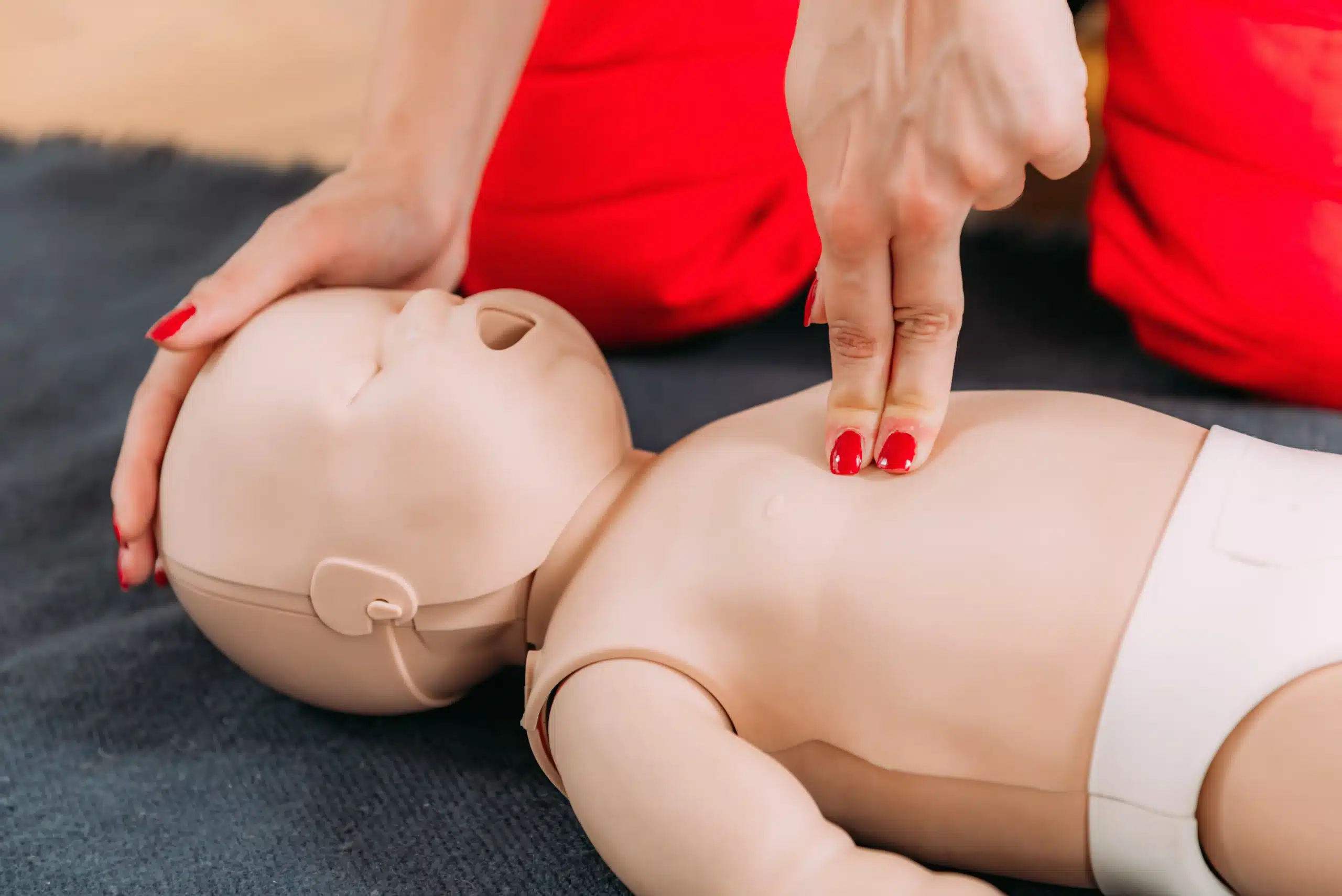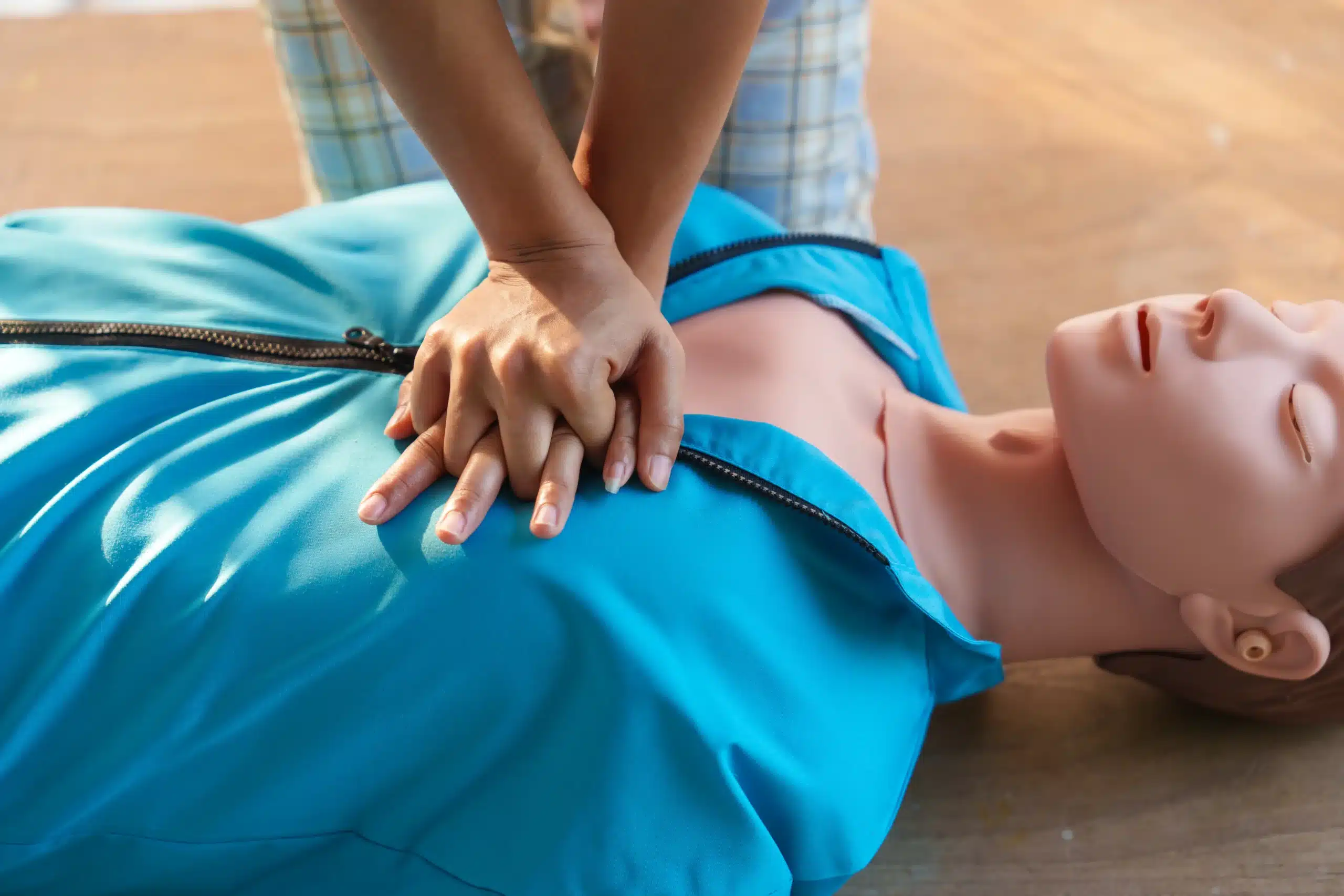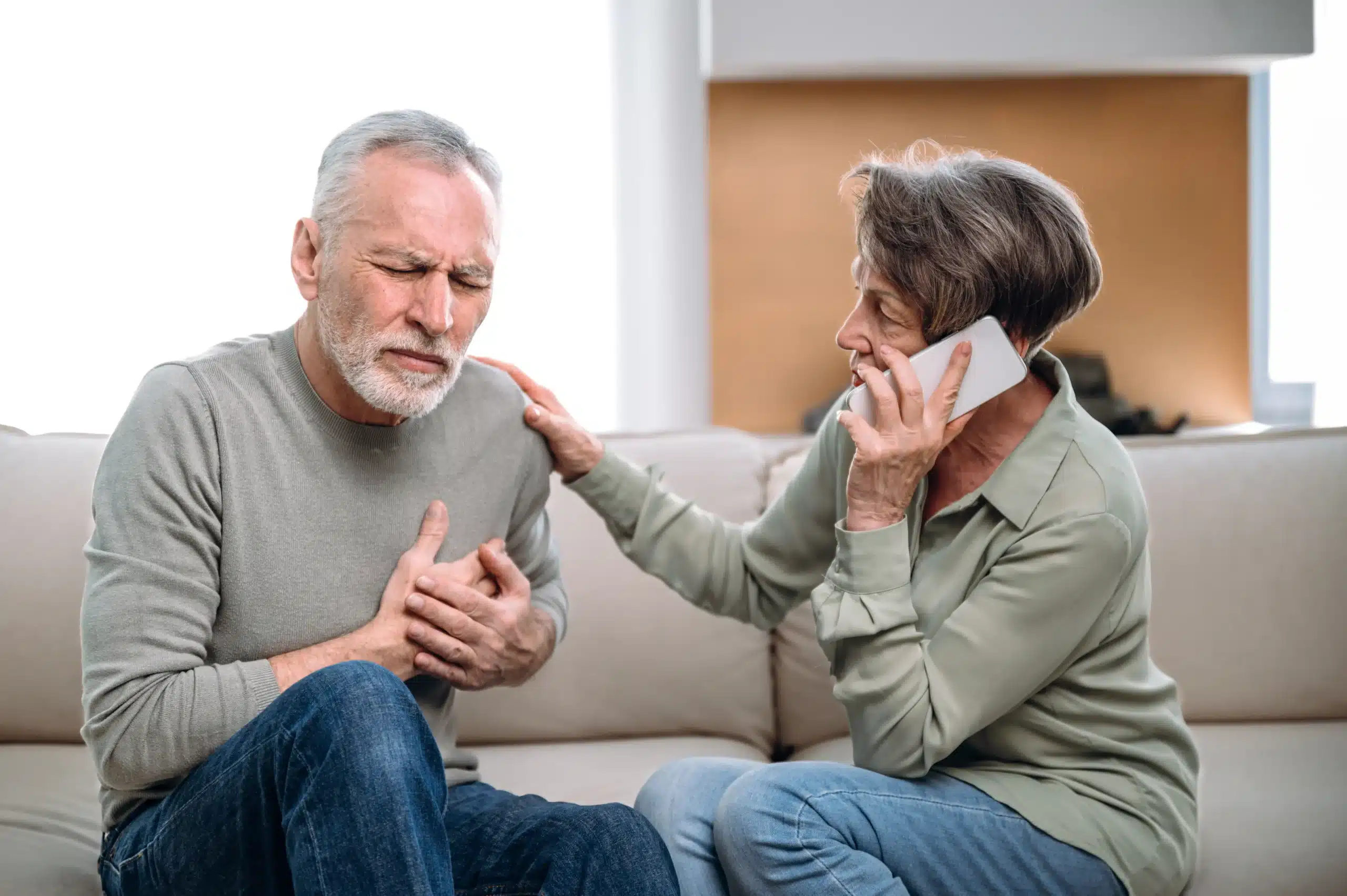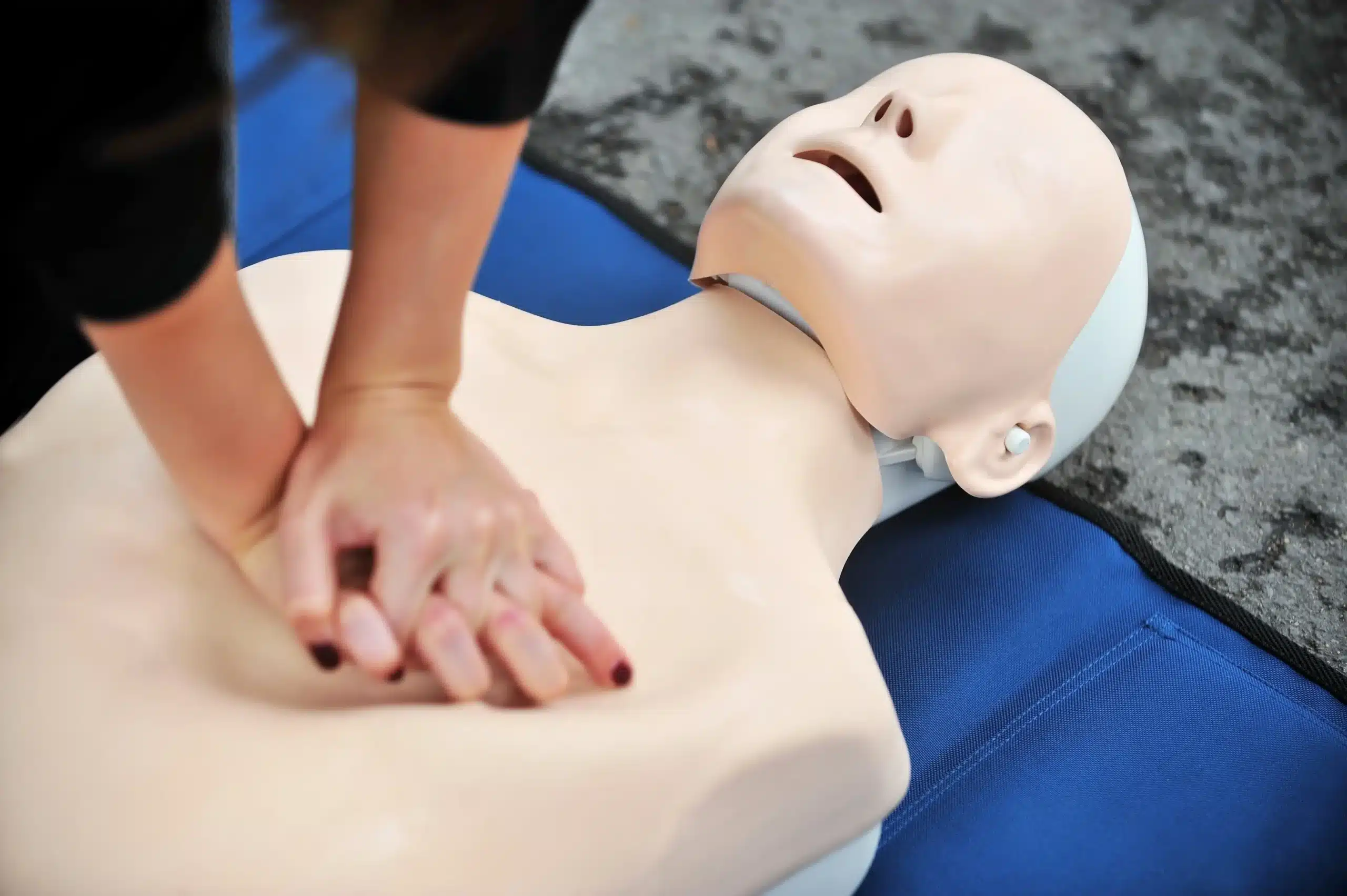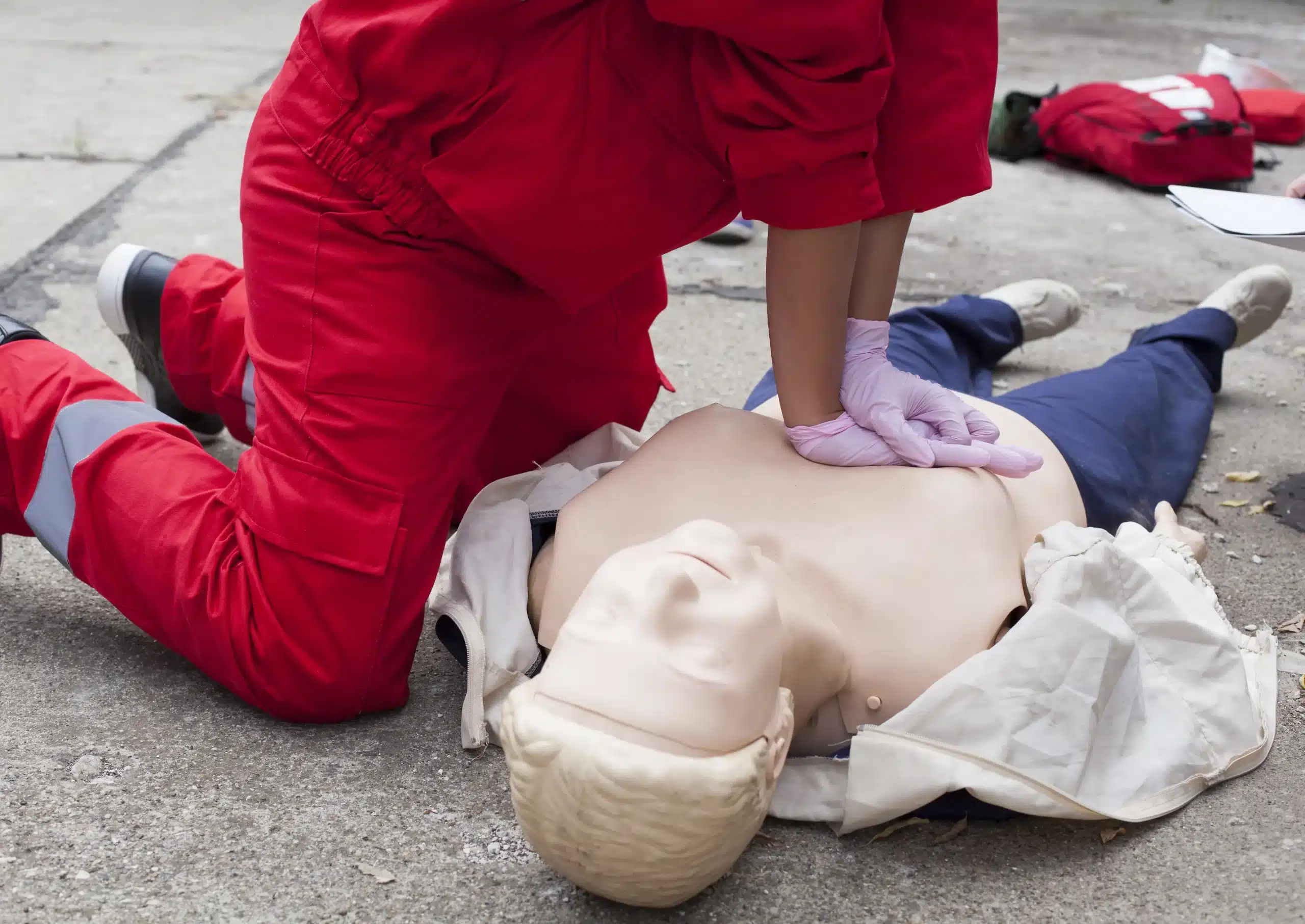Life is unpredictable, and emergencies can happen when we least expect them. Being equipped with CPR skills can empower you to act quickly and confidently in critical situations. If you’re in San Francisco and searching for CPR courses in SF, this guide will provide you with all the information you need. We’ll explore the different types of CPR training available, from basic life support to advanced cardiac care, and help you choose the right course for your specific needs. We’ll also discuss reputable training providers in the area, what to expect during a CPR course, and the importance of staying up-to-date with your certification.
Key Takeaways
- CPR skills empower you to make a difference: Learning CPR, whether basic or advanced, equips you to handle medical emergencies effectively. Find the right course type for your specific needs and goals.
- San Francisco offers accessible CPR training: Explore local providers, compare course formats and schedules, and find a class that fits your lifestyle. Prioritize AHA-certified courses for quality assurance.
- Hands-on learning builds CPR confidence: Select a course with substantial practical training using mannequins and equipment. This approach develops the muscle memory and quick thinking needed in real emergencies.
What is CPR? Why is it Important?
CPR, or Cardiopulmonary Resuscitation, is a lifesaving technique used when someone’s breathing or heartbeat has stopped. It combines chest compressions and rescue breaths to keep blood flowing and deliver oxygen to vital organs. Think of it as manually taking over the functions of the heart and lungs when they’ve stopped working correctly. Learning CPR empowers you to respond effectively during emergencies like heart attacks, near-drowning incidents, or choking. CPR training equips you with the skills to make a difference in these critical situations.
CPR is a critical skill for anyone to have, not just medical professionals. Emergencies can happen anywhere, anytime, and knowing CPR can mean the difference between life and death. CPR training provides you with the knowledge, skills, and confidence to act quickly and effectively in these high-pressure situations. Until professional medical help arrives, you become the vital link to maintaining blood circulation and oxygen delivery, giving the person the best chance of survival. The American Red Cross offers more information on the importance of CPR and being prepared for emergencies.
CPR Courses in San Francisco: What’s Available?
Finding the right CPR class can feel overwhelming with so many options. This section breaks down the different types of CPR courses offered in San Francisco to help you make the best choice.
Adult CPR
Adult CPR courses cover the essential skills needed to respond to cardiac emergencies in adults. You’ll learn how to recognize the signs of a heart attack, perform chest compressions, provide rescue breaths, and use an automated external defibrillator (AED). These courses are vital for anyone who wants to be prepared to help in a crisis. Learn more about adult CPR training options in San Francisco.
Child and Infant CPR
CPR for children and infants differs significantly from adult CPR. These courses teach the proper techniques for performing CPR on younger individuals, taking into account their smaller size and unique physiological needs. You’ll learn how to assess their condition, deliver age-appropriate compressions and breaths, and manage choking incidents. This specialized training is essential for parents, caregivers, and anyone working with children. Safety Training Seminars offers a range of CPR courses, many of which include child and infant CPR instruction.
Basic Life Support (BLS)
BLS certification is a healthcare professional-level course that builds upon the fundamentals of CPR. It covers advanced airway management, team dynamics during resuscitation, and the use of specialized equipment. BLS certification is often a job requirement for healthcare providers, including nurses, paramedics, and other medical personnel. You can find BLS certification courses in San Francisco through providers like Safety Training Seminars, ensuring adherence to the latest American Heart Association guidelines.
First Aid/CPR Combo Courses
Combining first aid and CPR training into one course offers a comprehensive approach to emergency preparedness. These courses equip you with the skills to handle a wide range of situations, from treating minor injuries like cuts and burns to responding to life-threatening cardiac events. This combined approach is a practical choice for anyone looking to gain a well-rounded skill set. Consider a combo course in San Francisco for convenient and comprehensive training.
Top San Francisco CPR Course Providers
Finding the right CPR class can feel overwhelming, so we’ve compiled a list of trusted providers in San Francisco. Whether you’re a healthcare professional seeking recertification or a parent wanting to learn essential lifesaving skills, one of these organizations likely fits your needs.
Safety Training Seminars
Safety Training Seminars offers a variety of CPR and first-aid certification courses in San Francisco. They’re known for their American Heart Association (AHA) courses, including BLS, ACLS, PALS, CPR, and First Aid, and competitive pricing. They also offer a convenient location serving residents of nearby Daly City, San Mateo, and Oakland. Learn more about their CPR training options.
American Red Cross
The American Red Cross is a well-known name in emergency preparedness. They offer various CPR and First Aid certification courses in San Francisco, designed to equip students with the skills to handle emergencies. Their courses cover adult, child, and infant first aid, breathing, and cardiac emergencies. Explore their course catalog to find the right fit.
American Heart Association
While the AHA doesn’t directly teach courses, they set the standards. Safety Training Seminars is a woman-owned AHA Training Center offering high-quality, AHA-certified BLS, ACLS, PALS, CPR, and first-aid courses in the San Francisco Bay Area. They cover everything from the basics to advanced life support. Consider their AHA-certified courses for comprehensive training.
Revive CPR
Revive CPR provides AHA-certified CPR, BLS, and First Aid classes in San Francisco. They emphasize their low price guarantee and same-day CPR certification. Classes are instructor-led and hands-on. Check out Revive CPR for more information.
San Francisco Fire Department
The San Francisco Fire Department offers CPR training through community outreach programs. For more comprehensive CPR classes and certification, often combined with First Aid, organizations like the American Red Cross and Heart Start CPR are good resources. Learn more about CPR training options in this San Francisco guide.
What Happens in a CPR Course?
CPR courses are designed to equip you with the skills and knowledge to respond effectively in medical emergencies. Here’s a glimpse into what you can expect:
Course Length & Certification Validity
CPR courses at Safety Training Seminars are structured to fit your schedule. You can find options ranging from a few hours to a full day, depending on the course and any included certifications, like First Aid. Your CPR certification is generally valid for two years, after which you’ll need a refresher course. Check out our CPR certification courses for more details.
Hands-on Skills Practice
CPR classes aren’t just lectures—they’re highly interactive. Expect plenty of hands-on practice using mannequins and other training equipment. You’ll learn the proper techniques for chest compressions, rescue breaths, and how to recognize cardiac arrest. This practical training builds your muscle memory and confidence, preparing you to react swiftly and efficiently. For more information on what you’ll learn, visit this helpful resource on CPR training.
Getting Certified
After successfully completing your CPR course, you’ll receive a two-year digital certificate. This certification demonstrates your proficiency in CPR and AED use for adults, children, and infants. The American Red Cross offers more information on their CPR/AED certification.
Expert Instructors & Small Classes
At Safety Training Seminars, our CPR courses are led by experienced, certified instructors. We keep our class sizes small to ensure personalized attention and ample opportunities for questions. This creates a comfortable learning environment where you can practice your skills and gain a thorough understanding of the material. The Red Cross also discusses the benefits of small class sizes in CPR training.
CPR Course Costs in San Francisco
CPR course costs in San Francisco vary depending on several factors, including the type of course, the training provider, and any available promotions. Having a general idea of the price range will help you plan your training budget.
Typical Prices
Safety Training Seminars offers competitive prices on American Heart Association (AHA) courses, including BLS, ACLS, PALS, CPR, and First Aid, making them a popular choice in the San Francisco Bay Area. For more details on their course offerings, visit their CPR classes page. They provide a range of CPR certification courses in San Francisco designed to meet diverse needs.
Discounts & Promotions
It’s always a good idea to check for discounts. Occasionally, you can find reduced rates, such as $15 off AHA BLS CPR courses through San Francisco CPR Classes. The best way to stay updated on current promotions is to visit their website or contact them directly.
Safety Training Seminars’ Low Price Guarantee
Safety Training Seminars offers a low price guarantee, giving you confidence that you’re receiving high-quality training at a competitive price. They also have convenient CPR course schedules, with same-day certification available. As a woman-owned AHA Training Center, they are dedicated to providing excellent instruction. Learn more about their low price guarantee and their commitment to affordable training.
Essential CPR Skills You’ll Learn
CPR certification equips you with life-saving skills to handle emergencies. From recognizing cardiac arrest to administering aid for choking, these courses cover essential techniques. Let’s explore what you’ll learn.
Adult CPR Techniques
Adult CPR training focuses on chest compressions and rescue breaths. You’ll learn to assess responsiveness, find correct hand placement for compressions, and perform them at the appropriate depth and rate. The training also covers opening the airway and delivering effective rescue breaths. These skills are crucial for maintaining blood circulation and oxygen flow until professional help arrives. Learn more about our adult CPR classes in San Francisco.
Child & Infant CPR Techniques
CPR for children and infants requires specific adjustments. You’ll learn to modify compression depth and rate based on the victim’s age and size, and how to recognize subtle signs of distress. The compression-to-breath ratio is consistent with adult CPR (30 compressions followed by 2 breaths), but with two rescuers present, it shifts to 15 compressions for every 2 breaths. For more detailed information, explore resources like this article on CPR for infants and children.
Using an AED & Choking Relief
CPR training often includes AED instruction. You’ll learn to operate an AED safely and effectively, which is critical in cases of sudden cardiac arrest. The course also covers choking relief techniques for adults, children, and infants. Knowing how to respond to choking can prevent serious complications. Our CPR courses in San Francisco cover AED use and choking relief.
First Aid Basics
Many CPR courses incorporate basic first aid training, covering common injuries like cuts, burns, and sprains. You’ll also learn to assess and respond to medical emergencies like allergic reactions and seizures. This combined knowledge empowers you to provide immediate care in various situations. Consider a comprehensive first aid and CPR course for broader emergency preparedness.
Which CPR Course is Right for You?
Choosing the right CPR course depends on your specific needs and career path. Whether you’re a healthcare provider, work with children, or want to be prepared for any emergency, there’s a course designed for you. Let’s break down the options:
Healthcare Professionals
Healthcare professionals, like doctors, nurses, and EMTs, need up-to-date certifications to maintain their licenses and provide the best possible care. The American Heart Association RQI program offers the most efficient path to BLS, ACLS, and PALS certification. This program focuses on continuous quality improvement and ensures you’re always ready to respond to a cardiac arrest. It’s designed to fit busy schedules and emphasizes real-world scenarios. Safety Training Seminars offers the RQI program in over 60 cities, making it accessible no matter where you practice. For those seeking more traditional classroom-based learning, BLS, ACLS, and PALS courses are also available.
Childcare Providers
Working with children means being prepared for anything. For childcare providers, a CPR course focusing on infants and children is essential. These courses cover CPR techniques specifically designed for smaller bodies and airways. You’ll learn how to recognize the signs of choking and practice life-saving interventions. Look for a course that combines CPR with First Aid training, giving you a comprehensive skill set to handle common childhood injuries and emergencies. Safety Training Seminars offers courses tailored to childcare providers, equipping you with the confidence to handle emergencies involving both children and adults.
General Public & Workplace Requirements
Even if you’re not a healthcare professional or childcare provider, learning CPR is a valuable skill. Many workplaces require CPR certification, and knowing how to respond in an emergency can make all the difference. CPR and First Aid certification can empower you to assist family members, coworkers, or even strangers in need. Safety Training Seminars offers a range of courses to meet various requirements, from basic CPR to more advanced certifications. They also offer a low price guarantee, ensuring you get quality training at an affordable price. Check with your employer or local regulations to determine what specific CPR certification you might need.
Why Take a CPR Course in San Francisco?
Learning CPR is a valuable skill, but finding the right course can feel overwhelming. Here’s why taking a CPR course in San Francisco offers unique advantages:
Local Resources
San Francisco offers a wealth of resources for CPR and first-aid training. Safety Training Seminars is known for competitive pricing on CPR certification courses throughout the Bay Area. Organizations like the American Red Cross also provide comprehensive CPR and first-aid classes, giving you a range of options.
Flexible Schedules
It can be tricky to find time for a CPR course. Safety Training Seminars offers courses seven days a week throughout the Bay Area—including San Francisco, San Jose, Oakland, and Concord—making it easier to find a time that works for you.
Ongoing Training
CPR skills require regular practice. A certification course prepares you with the confidence and skills to act quickly and effectively in a real emergency. The American Red Cross also emphasizes the importance of ongoing training to keep your life-saving skills sharp. Regular refreshers ensure you’re always ready to help.
Get Ready for Your CPR Course
So, you’ve decided to take a CPR course—fantastic! Knowing CPR can truly make a difference. To make the most of your training, here’s what you should know before you go:
What to Bring & Dress Code
CPR courses are hands-on. You’ll be practicing compressions and rescue breaths on mannequins, so wear comfortable clothing that allows for a full range of motion. Think athletic wear or something similar. You won’t need to bring anything specific with you, as all necessary materials are usually provided. Small class sizes ensure you’ll get personalized attention from your instructor and have plenty of opportunities to ask questions.
Pre-course Prep
While there’s no required homework before your CPR class, reviewing some basic first aid information can be helpful. Resources like these can give you a head start. Safety Training Seminars offers a variety of CPR certification courses in San Francisco, so you can find the right one for you.
Addressing Common Concerns
One common question is whether you really need a CPR certification if you’re willing to help in an emergency. While you don’t technically need formal training to perform CPR, a certification course prepares you with the confidence and skills to act effectively under pressure. Plus, many jobs require CPR certification—not just healthcare positions, but also roles like lifeguards, teachers, and childcare providers. This article offers more information on jobs that require this important skill.
Find Your Perfect San Francisco CPR Course
Compare Your Options
Finding the right CPR course takes a little research. Safety Training Seminars offers a variety of American Heart Association-certified courses in San Francisco, from the basics of CPR and first aid to more advanced life support training. You’ll also find other established organizations like the American Red Cross and Heart Start CPR offering comprehensive CPR classes and certifications. Explore the different curriculums and certifications available to find a course that aligns with your needs. For example, if you need BLS certification, check out these BLS courses in San Francisco.
Check Reviews & Testimonials
Before committing to a course, see what other students have to say. Check online reviews on platforms like Yelp and Birdeye to understand the quality of instruction, the learning environment, and the overall experience. Reading reviews can offer helpful insights and inform your decision. For example, Revive CPR consistently receives high ratings for their engaging instructors and practical training.
Make the Right Choice
Consider your schedule and location when choosing a CPR course. Safety Training Seminars offers classes in convenient locations throughout the San Francisco Bay Area, including San Francisco, Daly City, San Mateo, and Oakland, making it easier to find a class that fits your life. Whether you’re a healthcare professional seeking advanced training like ACLS or a parent wanting to learn basic life support for infants and children (PALS), or even if you need NRP Certification, find the CPR class that meets your specific requirements. Check if the provider offers a low-price guarantee, like Safety Training Seminars, to ensure you’re getting good value.
Related Articles
- Why CPR is Important in Healthcare – San Francisco CPR Classes
- CPR Certification in San Francisco: Your Complete Guide – San Francisco CPR Classes
- CPR Training in San Francisco: Your Complete Guide – San Francisco CPR Classes
- CPR & First Aid Training in San Francisco: A Guide – San Francisco CPR Classes
- Your Guide to CPR Classes in Daly City – San Francisco CPR Classes
Frequently Asked Questions
How long is a CPR certification valid for? CPR certifications are typically valid for two years. After that, you’ll need to take a refresher course to stay certified. Check with your specific certifying organization for their renewal policy.
What’s the difference between CPR and First Aid? CPR focuses specifically on life-threatening situations where someone’s breathing or heartbeat has stopped. First Aid covers a broader range of injuries and illnesses, from minor cuts and burns to more serious conditions requiring immediate attention before professional medical help arrives. Many courses combine CPR and First Aid training for a more comprehensive approach to emergency preparedness.
Do I need to be a healthcare professional to learn CPR? Absolutely not! CPR is a valuable skill for everyone, regardless of their profession. While certain professions require CPR certification, anyone can benefit from learning these life-saving techniques. Knowing CPR empowers you to assist family, friends, coworkers, or even strangers in a medical emergency.
What if I’m nervous about performing CPR in a real emergency? It’s completely normal to feel apprehensive about using CPR in a real-life situation. That’s why quality CPR courses emphasize hands-on practice and create a supportive learning environment. The repetitive practice helps build muscle memory and confidence, allowing you to react more effectively under pressure. Plus, certified instructors are there to answer your questions and address any concerns you may have.
How do I choose the right CPR course for me? Consider your specific needs and goals. Are you a healthcare provider needing to maintain your license? Do you work with children? Or are you simply looking to be prepared for any emergency? Different courses cater to different needs. Look for courses offering certification from reputable organizations like the American Heart Association or the American Red Cross. Also, consider factors like course length, location, schedule flexibility, and cost. Reading reviews from past students can also give you valuable insights.


